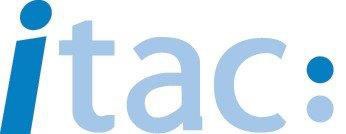Tuesday, November 2, 2021
OSRL is pleased to announce the annual ITAC meeting, which will take place virtually on Tuesday 2nd November 2021.
ITAC in 2021 will be a one-day virtual event in conjunction with the Canada Multi-Partner Research Initiative (MPRI). This oil spill science research project is run by the Department of Fisheries and Oceans, Canada.
The event will be split into two 1.5hr sessions and provide high-level updates on the big oil spill issues that ITAC will focus on. The second session will focus on MPRI research project updates. The event will be a precursor to a larger in-person event in Nova Scotia in March 2022.
Provisional Agenda
| 11:30 | ITAC and Oil Spill Science & Technology (10 min) Paul Schuler, OSRL, Moderator |
| 11:40 | Subsea Dispersant Injection (SSDI) and VOC Exposures to Surface Workers (15 + 5 min) Tim Nedwed, ExxonMobil (or Roger Prince, Arbor Consulting) |
| 12:00 | Subsea Mechanical Dispersion (SSMD) (15 + 5 min) Per Johan Brandvik, SINTEF |
| 12:20 | Wildlife Preparedness (15 + 5 min) Hugo Nijkamp, Sea Alarm |
| 12:40 | Field Dispersant Test Kit (15 + 5 min) Victoria Broje, Shell |
| 13:00 | Plastic “Nurdle” Response, Sri Lanka (15 + 5 min) Rob James, OSRL |
| 13:20 | ITAC 2022 Nova Scotia – Closing Paul Schuler (5 min) |
ITAC Attendees
ITAC’s membership comprises the oil industry (i.e. members of OSRL and other GRN OSROs) international organisations (ITOPF, IMO, IOPC etc), Governmental organisations (USCG, NOAA, etc...) R&D institutes (SINTEF, CEDRE, GoMRI etc...). It also includes academic institutes involved in industry-backed studies and other organisations with a non-commercial interest in improving oil spill response.
The connection with academia is an important feature of the ITAC model recognising that the industry is a big financial supporter of university-based research but sometimes there has been a disconnect with the sharing of knowledge and outputs from these studies with “industry” which ITAC tries to address.
Additional information:
ITAC is an industry-led group that addresses issues and advancements in international oil spill preparedness, response, and applied science and technology. ITAC seeks to expand knowledge and exchanges within the industry and with response organizations, government regulators, and the academic, science, and technical community. ITAC typically holds its annual forum in conjunction with marine and oceanographic institutions, such as Woods Hole Oceanographic Institution, Plymouth Marine Laboratory, and the National Oceanography Centre.
MPRI is an oil spill research program under Canada’s Oceans Protection Plan under the leadership of Fisheries and Oceans Canada. To enhance Canada’s response “toolkit”, MPRI brings together the best scientific expertise in oil spill research, both nationally and internationally, to advance scientific knowledge to address major gaps in oil spill response and remediation strategies.
The story so far
ITAC is a technical forum that was established in 1996 to address oil spill response (OSR) issues of interest to its member organisations and the wider response community. ITAC projects sought to provide advice, technical support, good-practice guidelines and benchmarking on key issues such as new technological developments in oil spill response techniques, training and response capabilities.
ITAC has evolved over the last twenty years and its model has changed in recent times. Recognising that much of the delivery industry technical outputs are now being channelled through the IOGP/IPIECA JIP and the API projects in the US. ITAC has now been cast in the role of supporting outreach and communication for those industry technical outputs to reach a broader church of stakeholders in the wider oil spill community. As such ITAC no longer “delivers” tangible work items but now offers a forum for knowledge sharing and information exchange.




